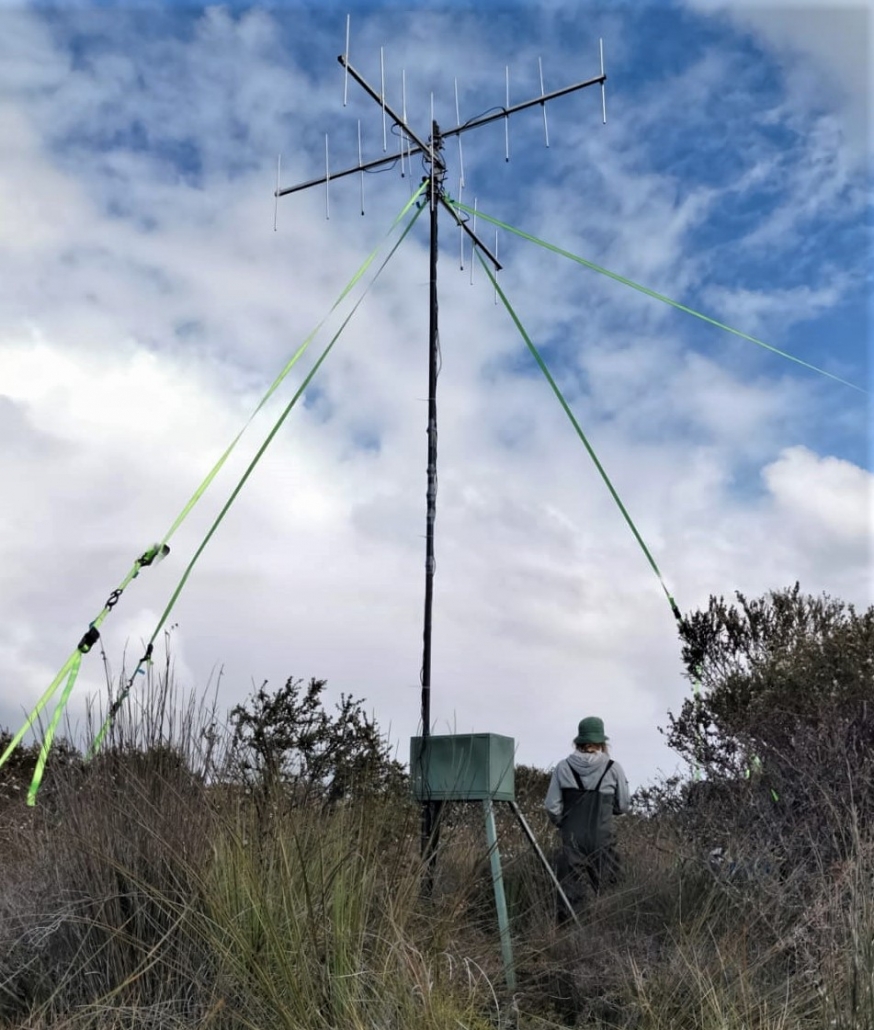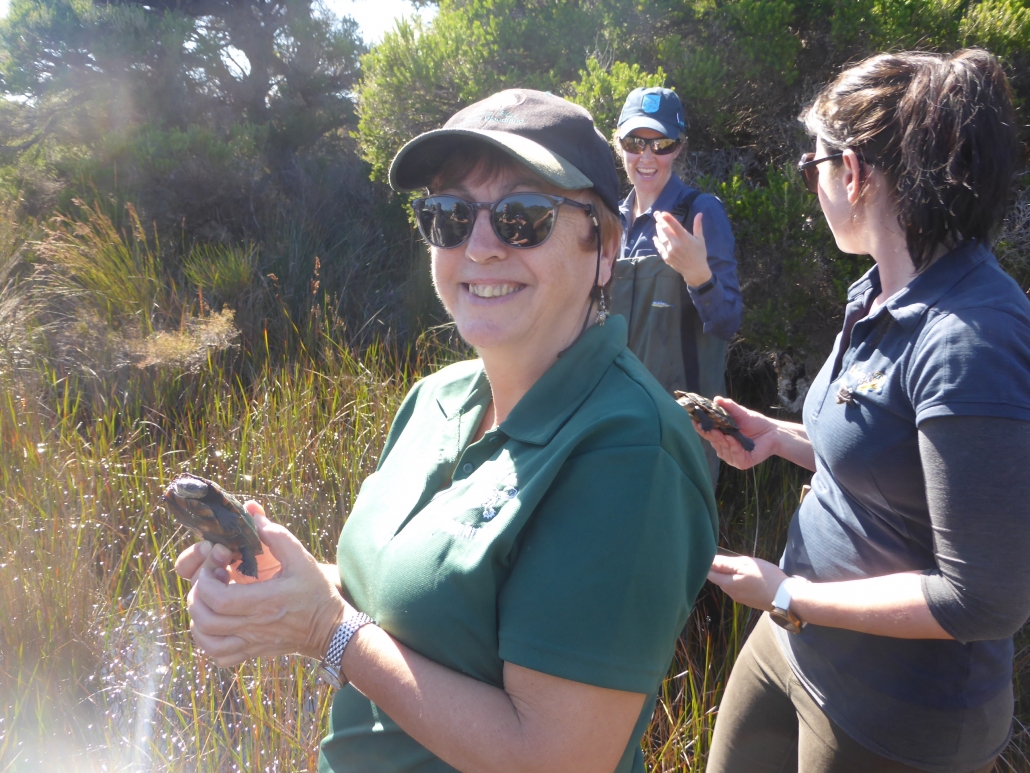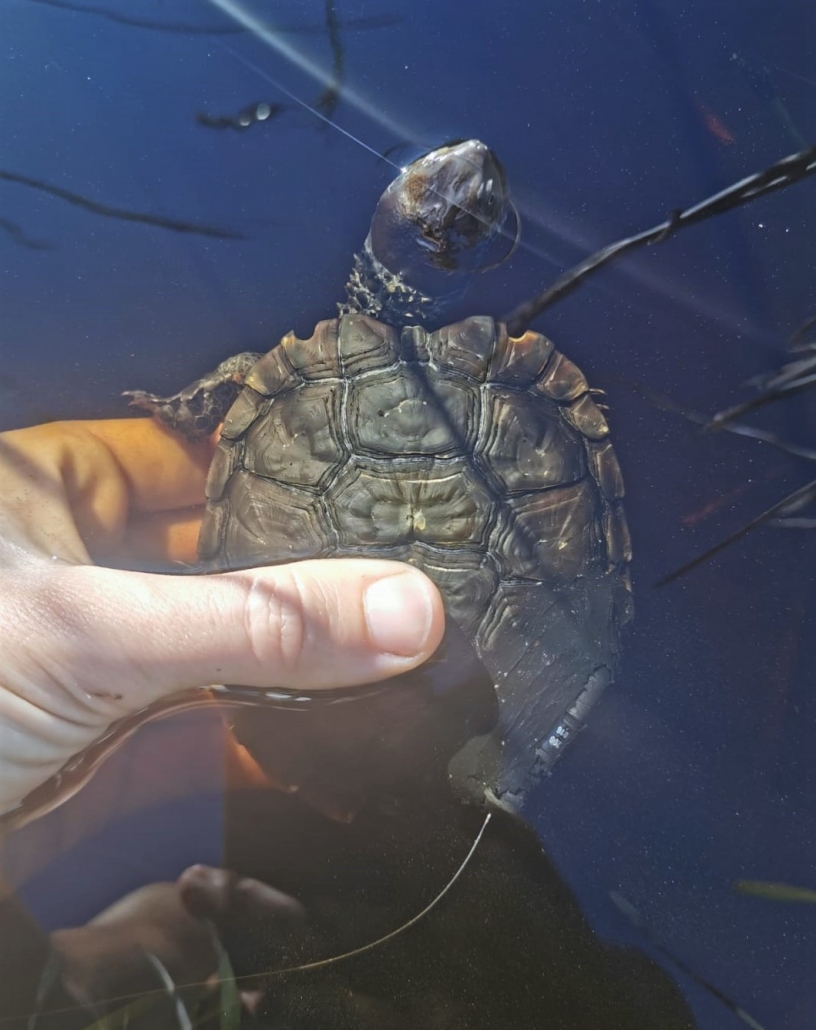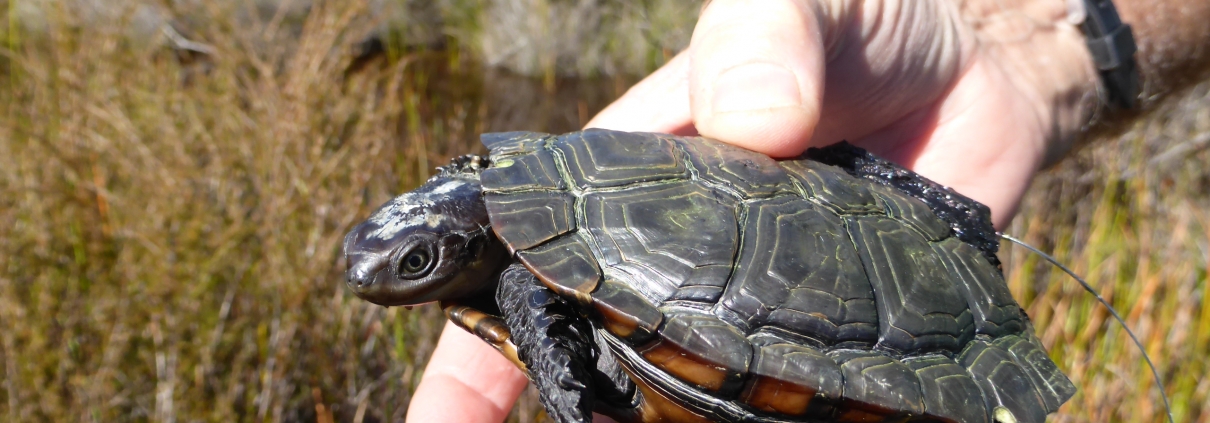Good news on National Threatened Species Day
September 7 is National Threatened Species Day, and we’d like to highlight a good news story for our little friend, the western swamp tortoise. In addition to losing much of their habitat on the Swan Coastal Plain, tortoises face the additional threat of climate change, as the seasonal swamps they inhabit will hold water for increasingly shorter periods of time. Recovery of the western swamp tortoise depends on securing and drought-proofing high-quality habitat in their indigenous range, and exploring new conservation options that account for future climate change.
Assisted colonisation is the intentional translocation of species outside their indigenous range to mitigate a threat, and has been explored as an option for the tortoise by researchers from the University of Western Australia (UWA) for over a decade. Assisted colonisation trials to measure growth rates of tortoises in cooler climates began in 2016, with juveniles bred at the Perth Zoo released to two locations ~ 300 km south of Perth. These southern wetlands were cooler and had longer hydro-periods than those near Perth, and were expected to offer ideal micro-climates for western swamp tortoises in about 20 years. Juveniles fared particularly well in one of the southern wetlands near the small township of East Augusta, and grew comparable amounts to those released at warmer translocation sites, such as at Moore River. It is thought that the good growth was achieved partly due to the abundance of aquatic food resources such as tadpoles, and longer wet periods resulting in longer times for foraging. A second assisted colonisation trial in 2018-19 revealed that bio-tags attached to tortoises could help researchers reconstruct how tortoises behaved in different climates – and in particular, to identify the weather conditions that allowed them to be active.
A third assisted colonisation trial has just commenced in the East Augusta region in August 2021, with the objective of understanding whether the energy requirements of the species can be met in cooler climates, over both the short- and long-term. More than 70 tortoises bred at Perth Zoo were released, and most are carrying small tags that record their activity and shell temperature. If the trial is successful, the tortoises may have a new area to call home, and one that could safeguard the species as the climate changes. The research at East Augusta is being led by UWA researchers (primarily PhD candidate Bethany Nordstrom), with the support of many staff at the Dept of Biodiversity Conservation & Attractions and the Western Swamp Tortoise Recovery Team. The Friends of the Western Swamp Tortoise have purchased some of the bio-tags and monitoring equipment for the year-long trial, for which the research team members are very grateful!





